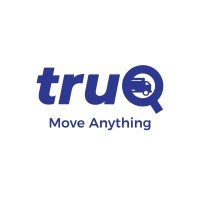In the bustling roads and markets of African cities, small-scale transporters—those who run single trucks or motorcycles—are often overlooked in the grand narrative of logistics. They struggle with inefficiencies, a lack of access to credit, and manual processes. Yet, a Nigerian startup called truQ is determined to rewrite that story. By fusing logistics with fintech, the company aims not just to digitise their operations, but to create real pathways toward growth and inclusion.
Founded with a vision to serve the backbone of African transport, truQ is carving a niche at the intersection of logistics and technology. It addresses chronic challenges like vehicle underutilisation, route planning, downtime, maintenance delays, and the absence of credit facilities. Its model is simple in principle but complex in execution: empower small transport operators with digital tools and financial access so they can operate more efficiently—and profitably.
Recent recognition has reinforced its mission. truQ recently secured a US$100,000 grant in the Fintech for Financial Inclusion category from the FINCA Competition Grant, outshining over 300 global entrants. The funding is earmarked for rolling out more inclusive finance solutions tailored to small transporters, enabling them to scale without drowning in debt or administrative burdens.

Table of Contents
Digitisation in Practice: Solutions Tailored for the Field
What does digitising a transporter’s operation really look like? It goes beyond tracking and messaging. TruQ has engineered several complementary systems to address every stage of the logistics lifecycle.
1. Fleet & Route Management
Instead of relying on handwritten logs or fragmented communication, transporters using truQ gain access to a digital dashboard. This platform suggests optimal routes, matches cargo with the nearest vehicle, and tracks deliveries in real time. The result is less idle time, lower fuel costs, and better capacity utilisation. The founding team notes that truQ’s value proposition lies in optimising intra-city and short-haul logistics, reducing friction in last-mile movements.
2. Embedded Financing and Credit Access
One of truQ’s most compelling differentiators is its integration of fintech into logistics. Many small transport operators lack the collateral or credit history to qualify for loans from conventional banks. truQ steps in by offering microloans and flexible credit based on operational data and performance metrics. That way, operators can repair trucks, purchase spare parts, or invest in upgrades without collapsing under interest burdens. This financing model was among the reasons truQ won the FINCA grant.
3. Value-Added Services & API Tools
To keep pace with increasingly digital supply chains, truQ also offers APIs that allow businesses to integrate their logistics directly with the platform. Retailers, e-commerce vendors, distributors, and institutions can automate order dispatch, track shipments, and even predict delivery timelines seamlessly. In addition, truQ continues iterating on ancillary services—vehicle maintenance scheduling, insurance linkages, performance analytics—that deepen its footprint beyond just moving goods.

Impact on Small-Scale Transporters
The true measure of truQ’s work lies in how it changes the day-to-day of small operators. In many African cities, independent transporters endure volatile incomes, hidden costs, and unplanned downtime. By digitising operations, truQ helps mitigate those risks.
- Increased Earnings: With smarter route matching and fewer “dead miles,” transporters are able to increase their trip count and revenue per shift.
- Reduced Downtime: Predictive maintenance alerts and repair financing cut the downtime associated with vehicle breakdowns, which is a frequent disruptor in this sector.
- Access to Credit: Rather than depending on predatory informal lenders or foregoing vital maintenance, transporters can tap fairer, data-driven credit lines tied to their performance on the platform.
- Transparency and Trust: Digital systems create auditable records, which help operators negotiate better deals with clients, avoid disputes, and build credibility over time.
These benefits ripple outward—transporters become more profitable and stable, which in turn strengthens the efficiency of supply chains and distribution networks in cities and between regions.
Challenges, Growth and the Road Ahead
No transformation of this scale comes without obstacles. TruQ must navigate regulatory uncertainties, infrastructure gaps, digital literacy, and trust issues. Convincing transporters—many of whom operate with cash and manual habits—to adopt a new system is no small feat.
Yet recent signals suggest momentum is in truQ’s favor. The grant from FINCA not only provides capital but also validates its social and financial inclusion goals. Investors like Ajim Capital have publicly articulated confidence in truQ’s model, citing its strong use of data, scalable infrastructure, and integrability with businesses. With this backing, the company is expanding beyond Nigeria, eyeing markets in Ghana, Kenya, and South Africa.
To reach scale, truQ must keep refining its risk models, diversifying its revenue streams, and deepen partnerships with insurers, maintenance providers, regulators, and fleet owners. It will also need to localise in each market: logistics conditions, regulatory regimes, and credit norms vary across African countries.
But the promise is big. As Africa accelerates toward digitised infrastructure, logistics remains a linchpin of growth. Empowering those at the “last mile”—the small transporters—could multiply economic impact far beyond what traditional big logistics players can do alone.

Conclusion
How Nigeria’s truQ helps small-scale African transporters digitise operations is more than just a headline—it’s an emblem of a movement. By combining logistics, fintech, and human-centred design, truQ is demonstrating how underbanked, under-resourced transporters can leapfrog a generation of inefficiency. If it succeeds, it won’t just change transport—it could redraw the map of opportunity for micro-entrepreneurs across Africa.
Join Our Social Media Channels:
WhatsApp: NaijaEyes
Facebook: NaijaEyes
Twitter: NaijaEyes
Instagram: NaijaEyes
TikTok: NaijaEyes




